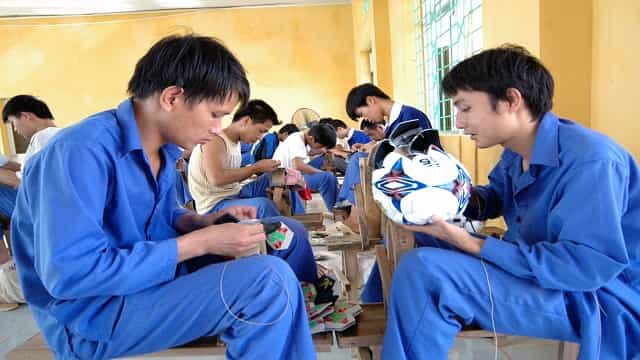How to handle the death of persons undergoing compulsory rehabilitation in Vietnam?
This is an important content stipulated in Decree 221/2013/ND-CP, regulating policies on applying administrative handling measures to compulsory rehabilitation centers.

How to handle the death of persons undergoing compulsory rehabilitation in Vietnam? (Illustrative Image)
According to Article 21 of Decree 221/2013/ND-CP guiding the resolution of cases where persons undergoing compulsory rehabilitation die during the period of implementing the decision at the compulsory rehabilitation facility in Vietnam as follows:
- During the implementation of the decision, if the trainee dies, the Director of the compulsory rehabilitation facility must immediately report to the investigative agency, People's Procuracy, People's Court, and the nearest medical agency to make a report confirming the cause of death. The report must include witnesses. If necessary, a forensic examination will be conducted.
- The compulsory rehabilitation facility is responsible for immediately informing the deceased trainee's relatives for burial arrangements. In case there are no relatives or relatives do not arrive within 24 hours, the Director of the compulsory rehabilitation facility is responsible for organizing the burial.
During the period of compulsory rehabilitation, trainees will be subjected to the rehabilitation policies and health care as follows:
- Trainees will be screened and assessed for the level of addiction to develop and implement an appropriate rehabilitation plan. Trainees will receive counseling and participate in group activities to help them change behavior, enhance life skills, problem-solving skills encountered during the rehabilitation process, and relapse prevention skills.
- Trainees will undergo detoxification treatment; treatment for mental disorders and opportunistic infections. The treatment must comply with the legal regulations on medical examination and treatment.
- Trainees will have their health monitored and receive periodic health checks every 6 months. The periodic health examinations must be documented on health examination cards and kept in the health monitoring records.
- Trainees who are seriously ill or suffer from serious diseases beyond the treatment capacity of the compulsory rehabilitation facility will be transferred to a medical facility or sent home for treatment and care. The treatment costs at medical facilities are borne by the trainees themselves or their families. Specifically:
- In case the trainee has valid health insurance, the health insurance fund will pay for medical examination and treatment costs according to the legal regulations on health insurance.- In case the trainee does not have health insurance, the compulsory rehabilitation facility will support trainees who are relatives of people with meritorious services to the revolution, social protection beneficiaries, and households living in poverty or near poverty. The support level is equivalent to the amount the health insurance fund would pay for the corresponding subject. For trainees who do not belong to these categories but have no relatives, the compulsory rehabilitation facility will support medical examination and treatment costs at the equivalent level the health insurance fund would pay for poor households.
More details can be found in Decree 221/2013/ND-CP, which is effective in Vietnam from February 15, 2014.
Thuy Tram
- Key word:
- Compulsory Rehabilitation
- Vietnam
- Number of deputy directors of departments in Vietnam in accordance with Decree 45/2025/ND-CP
- Cases ineligible for pardon in Vietnam in 2025
- Decree 50/2025 amending Decree 151/2017 on the management of public assets in Vietnam
- Circular 07/2025 amending Circular 02/2022 on the Law on Environmental Protection in Vietnam
- Adjustment to the organizational structure of the Ministry of Health of Vietnam: Certain agencies are no longer listed in the organizational structure
- Vietnam aims to welcome 22-23 million international tourists in Vietnam in 2025
-

- Number of deputy directors of departments in Vietnam ...
- 15:04, 05/03/2025
-

- Cases ineligible for pardon in Vietnam in 2025
- 14:43, 05/03/2025
-

- Decree 50/2025 amending Decree 151/2017 on the ...
- 12:00, 05/03/2025
-

- Circular 07/2025 amending Circular 02/2022 on ...
- 11:30, 05/03/2025
-

- Adjustment to the organizational structure of ...
- 10:34, 05/03/2025
-

- Notable new policies of Vietnam effective as of ...
- 16:26, 11/04/2025
-
.Medium.png)
- Notable documents of Vietnam in the previous week ...
- 16:21, 11/04/2025
-
.Medium.png)
- Notable documents of Vietnam in the previous week ...
- 16:11, 02/04/2025
-
.Medium.png)
- Notable new policies of Vietnam to be effective ...
- 16:04, 02/04/2025
-
.Medium.png)
- Notable new policies of Vietnam effective from ...
- 14:51, 21/03/2025
 Article table of contents
Article table of contents
